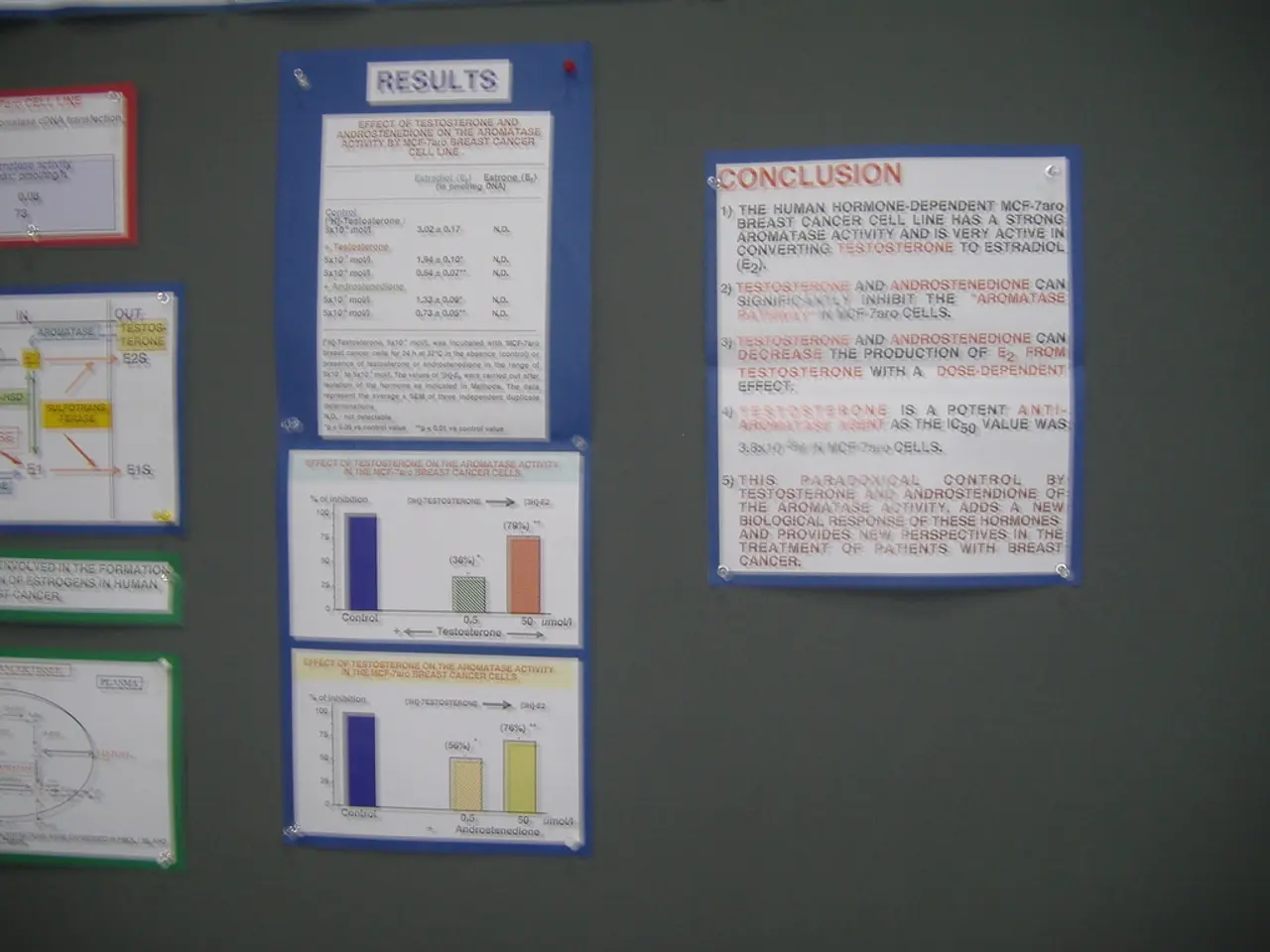Booming AI sector bolsters TSMC earnings - Thriving Business in TSMC's Semiconductor Manufacturing Industry
In the fast-paced world of technology, Taiwan Semiconductor Manufacturing Company (TSMC) has once again proven its dominance in the semiconductor industry. The Taiwanese chipmaker's net profit soared by over 60% year-on-year to around NT$398 billion (€11.7 billion) in the second quarter, surpassing analyst expectations[5]. This growth is attributed to the strong growth of powerful AI applications.
The AI megatrend is predicted to have profound and positive implications for TSMC’s profitability and the demand for computing power. AI-powered hardware sales are projected to soar to around $235 billion by 2025, far outpacing AI software growth[1]. As the leading semiconductor foundry, TSMC stands to benefit significantly because AI chips require advanced fabrication technologies like those TSMC specializes in. This demand surge for AI-specific silicon—including GPUs, AI accelerators, and specialized ASICs—will enhance TSMC's revenue streams.
The transition from GPT-4 to GPT-5 and competing AI models such as Google’s Gemini and Anthropic’s Claude AI indicates that AI models are becoming more sophisticated and resource-intensive[2]. More powerful AI models require greater computational resources, driving demand for more advanced chips fabricated by TSMC. Consequently, TSMC’s profitability is poised to rise due to increased orders for state-of-the-art chips necessary to run next-generation AI models.
AI integration is accelerating in various sectors, including call centers, education, healthcare, finance, and beyond[1][2]. This broad adoption fuels the need for increased computing infrastructure such as servers and data centers. Governments and hyperscalers are heavily investing hundreds of billions into data-center infrastructure and AI inference capabilities[4]. TSMC’s role as a critical supplier for chips used in these infrastructures positions it well to capitalize on this megatrend.
TSMC’s growth aligns with broader economic shifts driven by AI, described as a 2025 "economic singularity" that disrupts markets and investment strategies[3]. The booming AI demand driven by new technologies and global digital transformation suggests TSMC will continue being a key beneficiary in a rapidly evolving technology ecosystem.
In the third quarter, TSMC expects its revenue to be between USD 31.8 to 33 billion[6], indicating a continuation of the profit surge. Despite the rapid data center construction, meeting the demand for computing power remains a struggle for companies worldwide[7]. However, TSMC, as the world's largest chip contract manufacturer, is well-equipped to meet this demand, further solidifying its position in the semiconductor industry.
In conclusion, TSMC's profitability is expected to rise considerably due to surging demand for advanced AI chips driven by growing AI hardware sales projected to reach $235 billion by 2025. The increasing complexity of AI models and expanding AI applications across industries escalate global computing power needs, directly benefiting TSMC as the premier chip manufacturer. Massive investments in data centers and infrastructure to support AI operations further amplify demand for semiconductor manufacturing capabilities where TSMC excels. This AI megatrend is a cornerstone of the 2025 economic singularity, suggesting sustained growth opportunities for TSMC in the coming years.
Vocational training in advanced fabrication technologies will become increasingly crucial for TSMC's workforce, as the demand for AI-specific silicon and state-of-the-art chips continues to surge due to the AI megatrend. Community policy should consider prioritizing vocational training programs in artificial-intelligence-related fields to ensure TSMC can meet the ever-growing need for its technology.
The integration of AI technology, particularly in areas like call centers, education, healthcare, finance, and beyond, will require substantial investments in computing infrastructure. As a critical supplier for chips used in these infrastructures, TSMC can benefit significantly from implementing policies that foster research and development in artificial intelligence and related technologies, further securing its position in the global semiconductor industry.




